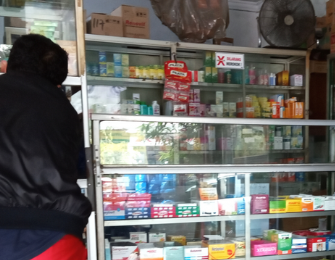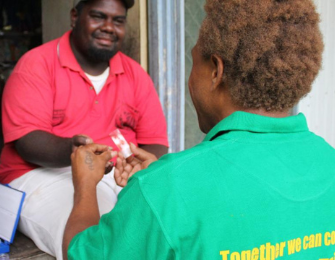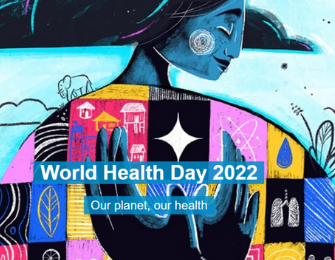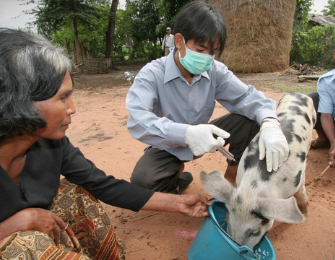
Researchers funded through the Indo-Pacific Health Security Initiative are providing vital information to the Indonesian Government about COVID-19 treatment practices in community settings.
The Protecting Indonesia from the Threat of Antimicrobial Resistance (PINTAR) study was launched in 2018 as a collaboration led by the Kirby Institute at UNSW Sydney. Other researchers come from the George Institute in Australia, Universitas Gadjah Mada and Universitas Sebelas Maret in Indonesia, the Indonesian Ministry of Health, and the London School of Hygiene & Tropical Medicine in the UK.
The research focuses private drug sellers (PDS), such as community pharmacies and drug stores, which are a convenient, affordable and accessible source of antibiotics for many Indonesians. The first phase of the study confirmed that PDS frequently supply antibiotics without prescription and without appropriate advice. This behaviour could facilitate the development and spread of antibiotic resistance.
When the COVID-19 lockdown halted the second phase of the study focusing on interventions to slow the spread of antimicrobial resistance, the team led by the Kirby Institute’s Professor Virginia Wiseman, had time to pause and identified new challenges to address.
“There is a real and present danger that the COVID-19 pandemic may further exacerbate problems of unnecessary self-medication and spark irrational use and hoarding of antimicrobial drugs including antibiotics,” says Professor Wiseman.
The PINTAR team, including Professor Tri Wibawa from Universitas Gadjah Mada and Professor Ari Probandari from Universitas Sebelas Maret, has now launched a sub-study to explore the understanding of COVID-19 among community pharmacies and drugs sellers.
An online survey went live on July 6. By enlisting the support of the National Association of Pharmacists and the National Association of Pharmacy Assistants, the study aims to reach all 39,520 registered PDS in the country.
“The identification of pharmacist's knowledge, attitudes, and policies towards COVID-19 will be the basis for the pharmacists’ development and involvement to tackle COVID-19, and other similar conditions and dynamics in the future," says Apt Sukir Satria Djati at the Community Service and Disaster Response Department of the National Association of Pharmacists.
The Secretary General of the National Association of Pharmacy Assistants, Jatmiko, also hopes that through the research “pharmacy assistants may educate the clients regarding COVID-19 properly, and may provide evidence for the basis of policy-making for our organization with scientific evidence that can be justified.”
The online survey, combined with follow-up phone interviews, seeks to understand the knowledge and understanding of COVID-19; current advice and medicines given to clients; measures taken by PDS to protect pharmacy and outlet staff from COVID-19 and any immediate actions that could be taken by Indonesian health authorities to improve COVID-19 management practices by PDS.
Meanwhile, the PINTAR Team are paying close attention to how the pandemic evolves in Indonesia in order to resume the original research in the field. The aim is to help the Indonesian Government to develop strategies to improve the use of essential medicines, especially antibiotics, in the private sector.
The sub-study has the support of the Antimicrobial Resistance Control Committee led by Dr Harry Parathon and the Indonesian Ministry of Health.
“Pharmacists and other staff have an important role is to provide clients with the right knowledge about medicines for COVID-19. I expect this research will improve the role of pharmacies to tackle COVID-19 in the community,” says Dr Anis Karuniawati, a expert advisor of the National Task Force for the Acceleration of COVID-19 Mitigation.
Learn more about the PINTAR study.




